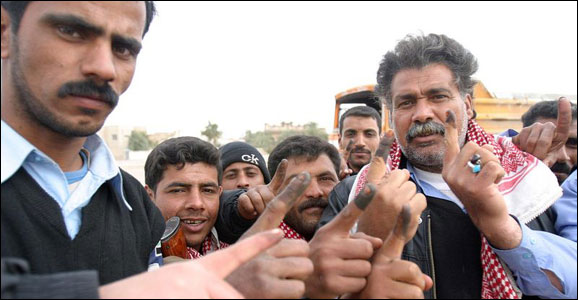Exporting Democracy: What Have We Learned from Iraq?
Exporting Democracy: What Have We Learned from Iraq?

Iraq has provoked the bitterest debate about American foreign policy since Vietnam. One rationale for the war proposed by George W. Bush’s administration was that it would lead to democracy—first in Iraq and then elsewhere in the Middle East. Many people thought that this was never a serious intention, but it is probably true that some members of the administration believed that the war would make democratization possible in Iraq. Four years later, most observers would agree that this effort has failed, despite the holding of several elections. Whatever you think of the Bush administration’s motives, what is to be learned from the Iraq experience about the export—and import—of democracy?
Read the Responses: Daniele Archibugi, Ofra Bengio, Seyla Benhabib, Paul Berman, Mitchell Cohen, Thomas Cushman, John Lister, Shibley Telhami.
The democratic ideal can be presented to peoples and countries that have not yet embraced it in two entirely opposite ways: through persuasion or through coercion and force.
The European Union is a champion in persuasion, often combined with powerful economic incentives. The prospect of joining the largest market of the world has played a crucial role in stabilizing new democratic regimes in Southern European countries such as Greece, Spain, and Portugal. In more recent years, it is playing the same role in Eastern Europe. It can be hoped that the EU will achieve the same result in Turkey and—why not?—further enlargement can also be envisaged with regard to countries on the southern shores of the Mediterranean.
So far, the EU has included countries relatively likely to embrace democratic faith and institutions. European countries in the South and in the East already had a high level of social capital and good political infrastructures. But there is also something specific to the EU: it is a civilian and not a military power. People would laugh...
Subscribe now to read the full article
Online OnlyFor just $19.95 a year, get access to new issues and decades' worth of archives on our site.
|
Print + OnlineFor $35 a year, get new issues delivered to your door and access to our full online archives.
|





